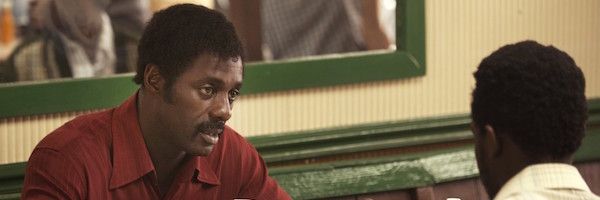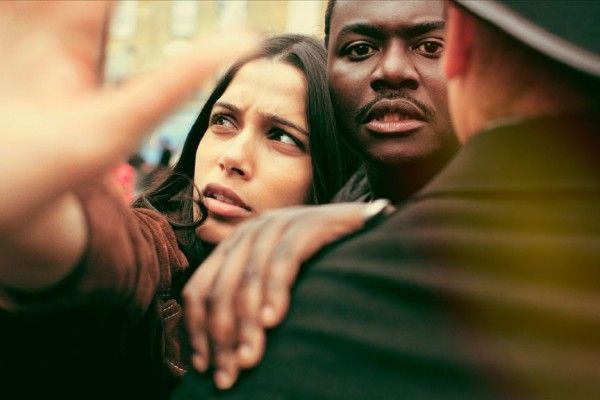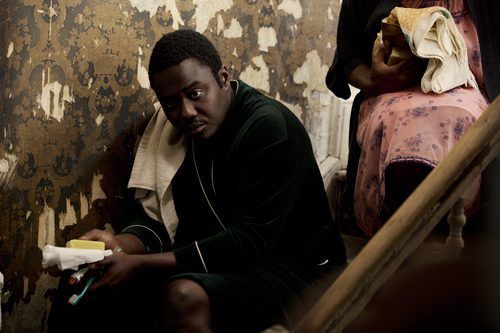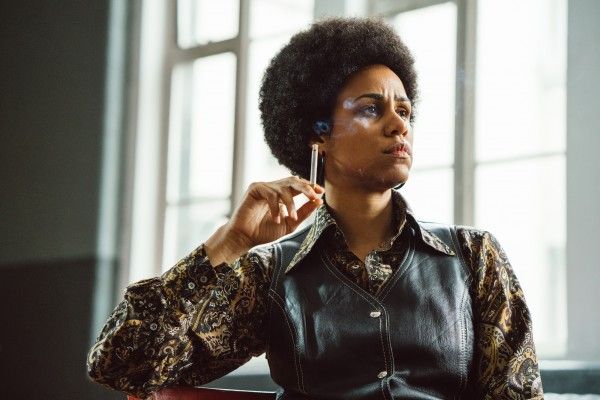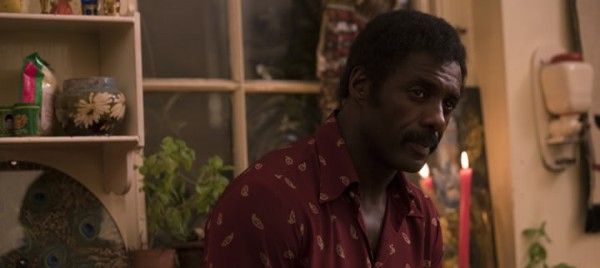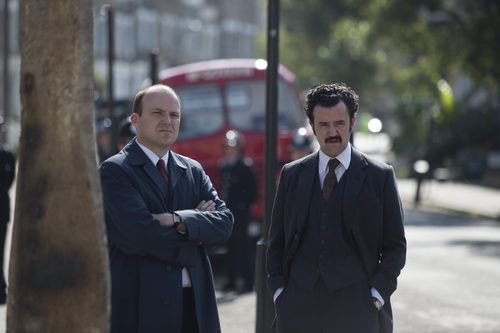The first episode of Showtime's Guerrilla, which was envisioned largely by 12 Years a Slave scribe and American Crime creator John Ridley, ends with a shattering sequence. Two apprehensive, betrothed radicals, prison reform and civil rights advocates Marcus and Jas (Babou Ceesey and Freida Pinto), take a pipe and revolver into a hospital with an ambulance driver as a hostage to break out an imprisoned friend. A hospital employee is shot in the process and their exit is a gloriously fumbling mess. Ridley directs and wrote the scene with stirring immediacy and tension but that's not what's so remarkable about the sequence. It's the amateurishness of it, the sense that neither Marcus nor Jas seems to really know what they're doing. It's worthy of Michael Mann or even, dare I say, Scorsese.
In moving to pay-cable, Ridley has seemingly come entirely into his own as a visual artist, finding a far more supportive atmosphere for him to study the violence visited upon the black body and its endless reverberations in society. In a way, the change is simple and obvious: Showtime allows for him to use the potent ugliness of violence as an emotional tool, and he does so with an assured selectiveness. When we see the aftermath of the assassination of Marcus and Jas's longtime friend and colleague, Julian (Nicholas Pinnouck), Ridley shows the gruesome face wound for a flash before cutting upwards at a more obscured angle. It's just enough to give a sense of the brutality of the London police against civil rights leaders in the 1970s, and when we witness beatings, torture, and worse later on, the director shows a preternatural knowledge of the ghastliness and power of violence as imagery.
It helps that the police are fronted by Rory Kinnear's Pence, a scheming, bigoted brute of a detective who masterminds Julian's assassination and hunts Marcus and Jas after the hospital siege. Ridley makes great hay of his relationship with his partner, Cullen, played by the reliable, undervalued Daniel Mays, who speaks convincingly of the experience of being an Irish boy in British schools and the horrors his father faced when Pence dismisses the entire concept of civil rights. And there seems to be some genuine longing felt between Jas and her more centrist, non-violent ex, Kent (Idris Elba), who becomes a political leader in the movement in London in the wake of Jas's involvement in another attack on a private citizen. Indeed, it's worth noting that this is some of Ridley's most convincing, ambitious writing to date, as he seems intent on considering how even righteous bloodshed only enables desperate, terrorizing crime.
The blunt force with which Pence works over those who do not bend to his will betrays a man who has been driven to the brink by public opinion, optics, and a teenage son who gets high, vomits, and then falls asleep at the local pub. And yet, Ridley even makes a bid for us to empathize with him, despite his bloodlust, cruelty, and recklessness, in seeing him clearly petrified of letting anyone know what he really wants and who he really has always been. And though it's never as audacious as the writing or as viscerally affecting as the violence, Ridley's imagery shows finesse and confidence. There's never any sense that he's just waiting for the performer to finish saying their lines and then cutting quickly to keep the plot moving. There are moments where gesticulation, reflection, and impulsivity guide the action as much as the various turns of the plot or canned signals toward character development. In other words, there's a sense of all of these characters as fully lived-in figures of the time, each one painted with a warring interior life left to rot in a prison or in fear of a police officer deciding it was your day to die because you're black.
Still, there is an awful lot of exposition that this cast is called on to jackhammer through, especially in the first three hours. The series runs for six episodes and that's honestly exactly where all of this should end, as good as the show is on the whole. Ridley accomplishes something admirable and riveting here and he never overstates his message too loudly or presses your awareness of what decade this takes place in. In the second episode, Kent becomes a political animal by condemning Jas and Marcus in the media and looks like a sell-out for doing so. In comparison, the diptych's own action at once embarrasses the police and makes it easier to moralize other crimes and violence, such as cutting a young man's face to grab much-needed funds for food and shelter. Ridley never makes any of this look pretty or even particularly useful; along with Pence's self-lacerating activities, there is so much damage done in the name of such dubious good. That Guerrilla makes this point so clear without feeling as if we're in the pews is triumph enough. The fact that the Showtime series ends up such an increasingly addictive watch is an unforeseen but welcome bonus.
Rating: ★★★★ - Damn Fine Television
Guerrilla airs on Sunday nights starting on April 16th at 9 p.m. EST on Showtime.

